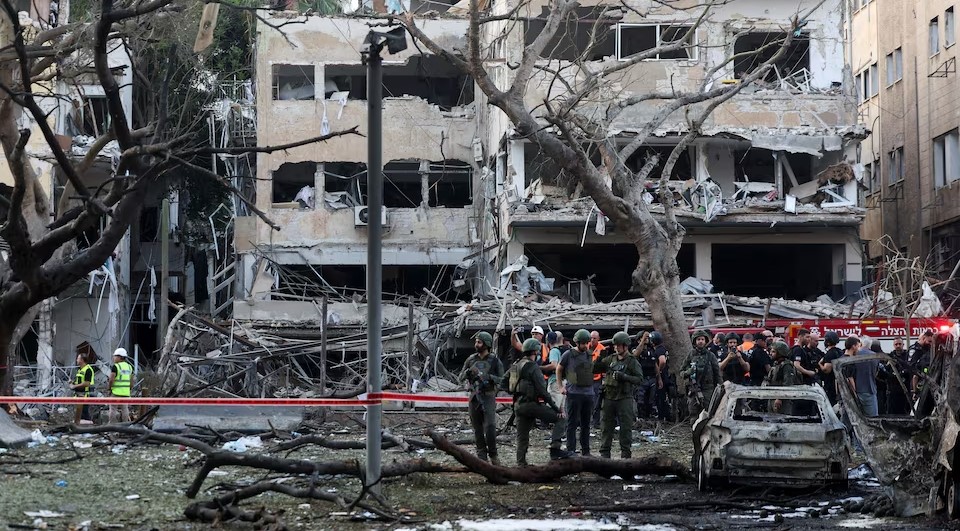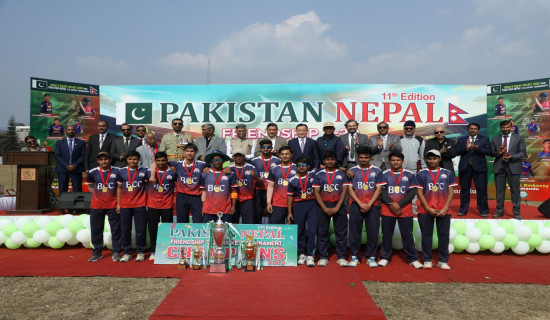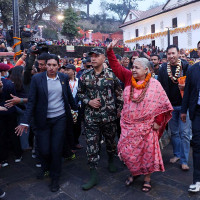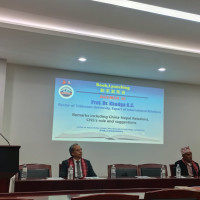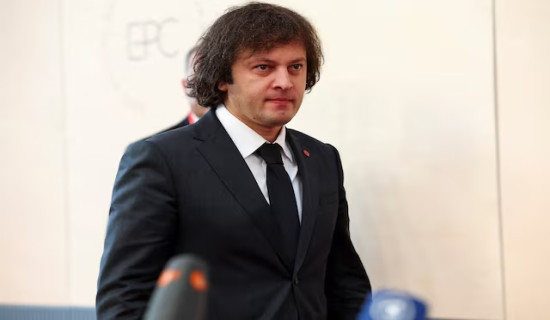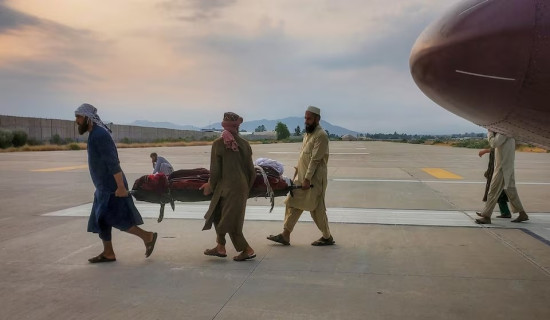- Monday, 16 February 2026
Israel says Tehran residents to 'pay price' after Tel Aviv, Haifa attacks
By Alexander Cornwell, Parisa Hafezi and Jeff Mason, TEL AVIV/DUBAI/WASHINGTON, June 16: Iranian missiles struck Israel's Tel Aviv and the port city of Haifa before dawn on Monday, killing at least eight people and destroying homes, prompting Israel's defence minister to warn that Tehran residents would "pay the price and soon".
The dangers of further escalation loomed over a meeting of the Group of Seven leaders in Canada, with U.S. President Donald Trump expressing hope on Sunday that a deal could be done, but no sign of the fighting abating on a fourth day of war.
The latest fatalities in Israel, reported by Israel's national emergency services, raised its death toll to 23 since Friday. Israeli attacks in Iran have killed at least 224 people since Friday, Iran's health ministry has said.
At least 100 more were wounded in Israel in the overnight blitz, part of a wave of attacks by Tehran in retaliation for Israel's strikes targeting the nuclear and ballistic missile programmes of sworn enemy Iran.
Search and rescue operations were underway in Haifa, where around 30 people were wounded, emergency authorities said, as dozens of first responders rushed to the strike zones. Fires were seen burning at a power plant near the port, the media reported.
Video footage showed several missiles over Tel Aviv, and explosions could be heard there and over Jerusalem. Several residential buildings in a densely populated neighbourhood of Tel Aviv were destroyed in a strike that blew out the windows of hotels and other nearby homes just a few hundred meters from the U.S. Embassy branch in the city. The U.S. ambassador said the building sustained minor damage, but there were no injuries to personnel.
Guydo Tetelbaun was in his apartment in Tel Aviv when the alerts came in shortly after 4 a.m. (0100 GMT).
"As usual, we went into the (shelter) that's right across the street. And within minutes, the door of the (shelter) blew in," the 31-year-old chef said.
"A couple of people came in bloody, all cut up. And then when we came to the apartment, after it quietened down, we saw there wasn't much of it... Walls are caved in, no more glass," he added.
"It's terrifying because it's so unknown. This could be the beginning of a long time like this, or it could get worse, or hopefully better, but it's the unknown that's the scariest.”
The predawn missiles also struck near Shuk HaCarmel, a popular market in Tel Aviv that typically draws large crowds of residents and tourists buying fresh fruit and vegetables, and to popular bars and restaurants. A residential street in nearby Petah Tikva and a school in the ultra-Orthodox Jewish city of Bnei Brak were also hit.
'NEW METHOD'
Iran's Revolutionary Guards said the latest attack employed a new method that caused Israel's multi-layered defence systems to target each other and allowed Tehran to successfully hit many targets, without providing further details.
The Israeli Defence Force did not immediately respond to a request for comment on the strikes. There were no reports in Israel of interceptor missiles hitting each other. Israeli officials have repeatedly said its defence systems are not 100% and have warned of tough days ahead.
Israeli Defence Minister Israel Katz said in a statement: "The arrogant dictator of Tehran has become a cowardly murderer who targets the civilian home front in Israel to deter the IDF from continuing the attack that is collapsing his capabilities."
"The residents of Tehran will pay the price, and soon."
The death toll in Iran was already at least 224, with 90% of the casualties reported to be civilians, an Iranian health ministry spokesperson said.
All the fatalities in Israel have been civilians, according to Israeli authorities.
Israel's military said on Monday morning it had struck again at command centres belonging to the Revolutionary Guard and Iran's military.
LEADERS MEET
Group of Seven leaders began gathering in the Canadian Rockies on Sunday, with the Israel-Iran conflict expected to be a top priority.
German Chancellor Friedrich Merz said his goals for the summit include for Iran not to develop or possess nuclear weapons, ensuring Israel's right to defend itself, avoiding escalation of the conflict and creating room for diplomacy.
"This issue will be very high on the agenda of the G7 summit," Merz told reporters.
Before leaving for the summit on Sunday, Trump was asked what he was doing to de-escalate the situation. "I hope there's going to be a deal. I think it's time for a deal," he told reporters. "Sometimes they have to fight it out."

Brent crude futures were up 0.5% in Asian trade on Monday, having surged late last week. While the spike in oil prices has investors on edge, stock and currency markets were little moved in Asia.
"It's more of an oil story than an equity story at this point," said Jim Carroll, senior wealth adviser and portfolio manager at Ballast Rock Private Wealth. "Stocks right now seem to be hanging on."
TRUMP VETOES PLAN TO TARGET KHAMENEI, OFFICIALS SAY
In Washington, two U.S. officials told Reuters that Trump had vetoed an Israeli plan in recent days to kill Iran's Supreme Leader Ayatollah Ali Khamenei.
When asked about the Reuters report, Israeli leader Benjamin Netanyahu told Fox News on Sunday: "There are so many false reports of conversations that never happened, and I'm not going to get into that."
"We do what we need to do," he told Fox's "Special Report With Bret Baier."
Israel began the assault with a surprise attack on Friday that wiped out the top echelon of Iran's military command and damaged its nuclear sites, and says the campaign will escalate in the coming days.
Iran has vowed to "open the gates of hell" in retaliation.
Trump has lauded Israel's offensive while denying Iranian allegations that the U.S. has taken part and warning Tehran not to widen its retaliation to include U.S. targets.
Two U.S. officials said on Friday that the U.S. military had helped shoot down Iranian missiles that were headed toward Israel.
Trump has repeatedly said Iran could end the war by agreeing to tough restrictions on its nuclear programme, which Iran says is for peaceful purposes but which Western countries and the IAEA nuclear watchdog say could be used to make an atomic bomb.
Iran's President Masoud Pezeshkian told parliament on Monday that Tehran has no intention of building nuclear weapons, but it would continue to pursue its right to nuclear energy and research.

